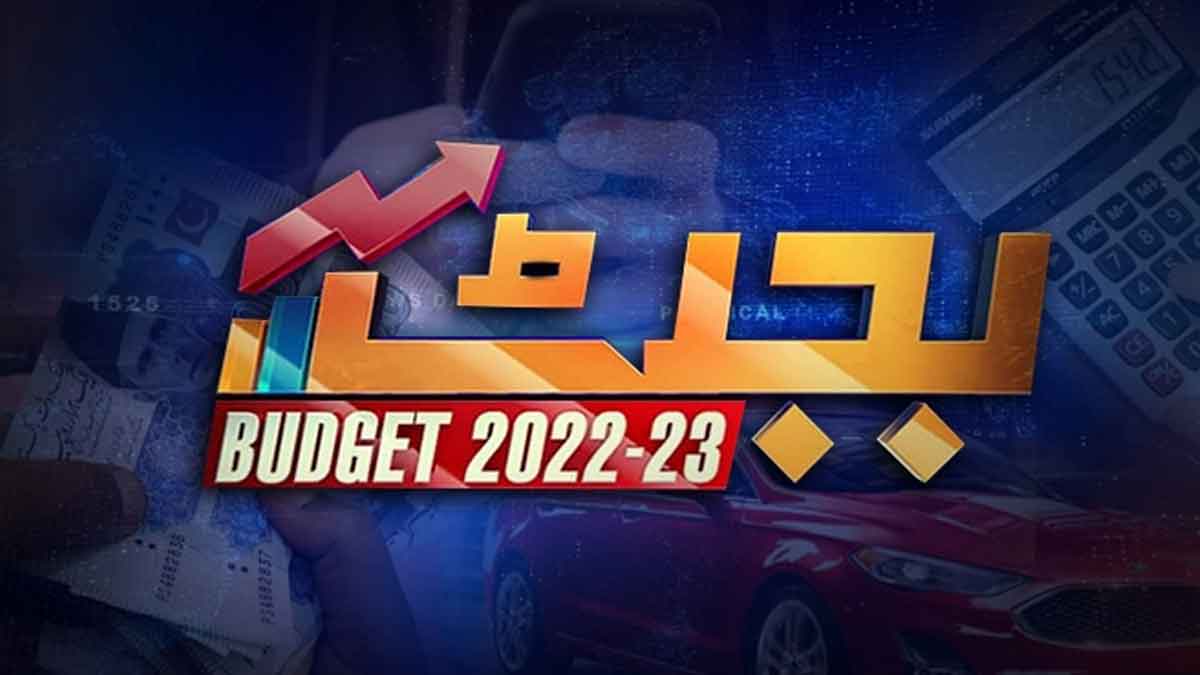The budget for the fiscal year 2022-23 (FY23) has been presented by Finance Minister Miftah Ismail in the National Assembly on Friday.
The minister began his speech by criticizing the former PTI government, saying “An inexperienced team brought the country to the brink. Different people presented the budget every year presenting different policies which hurt investor sentiment.”
Main budgetary proposals
· No tax on salaries of up to Rs 100,000 monthly; earlier the minimum taxable salary was Rs 50,000/month
· Minimum tax bracket for small business persons to be increased from Rs 0.4 million to Rs 0.6 million
· 15 percent rise in salaries of government employees
· Sales tax exclusion on import of solar panels and distribution
· Advance withholding tax will be taken from those sending remittances abroad through credit, debit, and pre-paid cards
· Advance tax will be raised on cars above 1,600cc
· Exclusion of complete custom duty on pharmaceutical ingredients
· Rs 51 billion allotted for education projects
Read more: Rs 9.5 trillion FY23 budget unveiled: 15% increase in salaries, 5% in pensions
· Rs 24 billion for the health sector
· People with an annual income of Rs 300 million or more per year are supposed to pay 2 percent extra tax
· Advance 2 percent tax on the value of high-value hybrid and electric automobiles.
This year, the budget outlay is Rs 9,502 billion, nearly a trillion rupees higher than previous year’s outlay.
Moreover, the government has accounted for total current expenditure at Rs 8,694 billion for FY23, which is 15.5 percent more than last year’s budgeted figure, while the total revenue budgeted for FY23 stands at Rs 9,004 billion.
Ismail stated that the government has fixed the tax collection target for the Federal Board of Revenue (FBR) at Rs 7,004 billion for FY23, almost 20.1 percent higher than last year’s Rs 5,829 billion.
For FY23, the overall deficit is budgeted at Rs 3,798 billion- 4.9 percent of GDP. However, it was budgeted at 6.3 percent of the GDP last year.
Furthermore, total allocations for the Public Sector Development Programme (PSDP) have been budgeted at Rs 2,158 billion for FY23, an increase of just one percent from the previous Rs 2,135billion.
Commenting on the growth target set by budget FY23, the minister said, “The problem of our economy is that growth is 3-4 percent, but when it moves up to 5-6 percent, our current account deficit goes out of control, because we give priority to the elite, which increases our imports. We need to adopt new thinking, to facilitate the lower-income section to increase domestic production,” adding government had announced a target for 11.5 percent inflation next year.





















